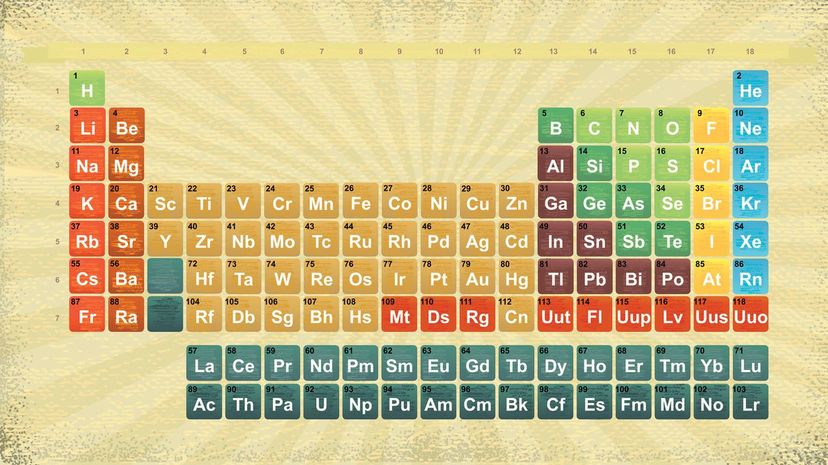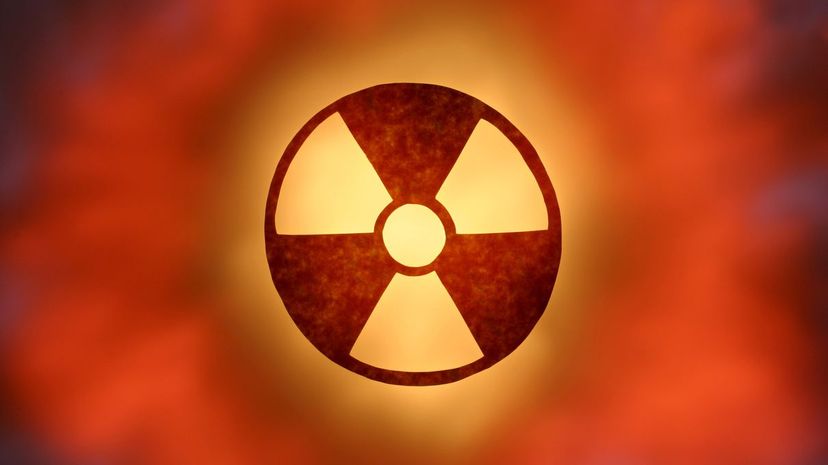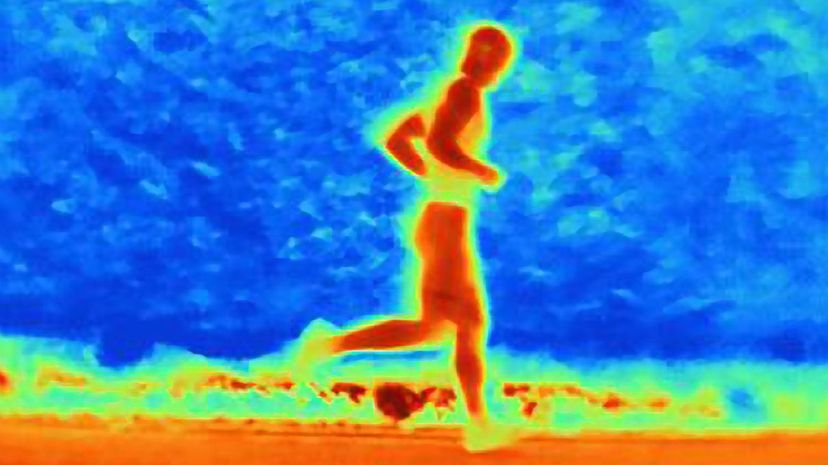
About This Quiz
Most of us are introduced to physics (as a science) in high school. Although before we are introduced we are we know that if you kick a ball, it will go in the direction you kicked, we simply don't know why. Well, physics is the "why" in this situation and every situation, but it's so much more than that. Physics can tell you how far that ball you kicked traveled, and how much force was used to get the ball to travel that far, that fast. The science and math behind physics can get overwhelming, especially for those who don't consider themselves "naturals" in either of these subjects.
12th-grade physics is a little simpler and eases students in (as much as something can be eased into the world of physics). It might not be the easiest science in the world, but do you think you can take on a 12th-grader in this subject?
According to the laws of motion, "An object at rest will remain at rest until a second object exerts force." This quiz is all about you becoming that force and working your brain hard. Remember that every action has an equal and opposite reaction, so start this quiz to see how we'll react to your genius!

While the E stands for the amount of energy that is released, the m stands for mass, and the c stands for the speed of light. This is Albert Einstein's Theory of Special Relativity.

Speed is often considered the distance that something travels over a period or unit of time. Keep in mind that distance can be how far someone falls to how far someone runs. While time can be measured in various ways including seconds and minutes.

A light-year is the distance light can travel through space without interruption in a single year. By comparison, if an object were traveling at the speed of light, it would take it one year to reach the distance of a light-year.
Advertisement

Electricity flows through conductors. However, wood doesn't allow electricity to flow through it, so it is considered an insulator. If the wood is wet, electricity can flow through the water, but not the wood itself.

Quantum numbers can be used for a variety of things. They generally help determine an electron configuration within an atom, and they help estimate the location of those electrons within an atom.

The magnetic field of an object is the space around the magnet that attracts other magnetic objects. Stronger magnets have wider magnetic fields, and can attract objects of varying magnetic degrees.
Advertisement

The idea of the first law of motion is that as long as something is not disturbed, it will either continue in uniform motion or at rest. Keep in mind that resistance from air or other objects is considered an external force that acts upon the object in question.

Buoyant force is the upward force on an object that is immersed in any fluid. If the object is lighter than the fluid, it will move upward. An object as light as a beach ball has a lot of buoyant force compared to the water in your pool.

According to the Law of Conservation of Energy, energy itself cannot be created or destroyed. It can only be transferred from one form to another. This means that you can't simply synthesize energy in a lab.
Advertisement

Rectilinear motion simply refers to something moving in a straight line. It isn't being affected or interrupted by any other objects or forces. Denser objects are more likely to move rectilinearly, because they are less affected by lower forces.

Nucleons can be used as a term that represents either protons or neutrons within the nucleus of an atom. The total number of nucleons in an atom determines the mass number of the isotope.

Each element on the periodic table has a specific number assigned to it. These numbers represent the amount of protons a single atom of that element has in the nucleus. This number often affects the atomic weight of the atom.
Advertisement

Reflection doesn't just occur with light or things that you see. Sound waves can also reflect. The most perfect example of this is an echo. When a wave of any sort bounces off a boundary, it is reflecting.

Humidity is the amount of water in the air. To find absolute humidity, you have to take an air sample, and find out how much water vapor is in it. Once you know how much water vapor is in the sample, you can compare it the size of the sample. The resulting ratio is considered absolute humidity.

Pascals are units of pressure that are equal to one Newton acting consistently (uniformly) over a 1m^2 area. They are normally used to measure the internal pressure or stress on something.
Advertisement

Though the intervals in any given periodic motion might be different, the definition is the same. Even if we only see something happen once a year, it is still considered periodic motion, because it can be predicted.

There are three laws of planetary motion, and they dig deep into how planets move around the sun. One of them even states that, "The square of the period of a planet is directly proportional to the cube of the radius of the semi-major axis of the orbit."

Elasticity in an object is important for all things physics. If you've ever had to create a contraption that allows you to drop an egg off a balcony without it cracking, you did a lot of experimentation with elasticity of various materials.
Advertisement

Oscillatory motion can only happen if the object in motion has an equilibrium or a mean position. This is the position the object would stand at rest at. When you think of a pendulum, you see that it sways, but doesn't bounce. This is because of the oscillatory motion.

Absolute zero is the temperature at which all motion ceases and vanishes, and nothing can move, including ions. The temperature is -273.16 degrees F or -273.15 degrees C. This theoretical temperature is 0 on the Kelvin scale.

While amorphous substances can be jelly-like, jelly is considered a solid. The term amorphous refers to the fact that this substance does not have a clear shape or form that can be defined.
Advertisement

While lasers were all the rage in movies in the 1980s and '90s, they served an even greater purpose in the field of physics. They help scientists from all branches conduct experiments with distance and light.

According to the second law of motion, the rate of change is always directly proportional to the amount of force that was applied. Depending on how hard you hit the ball, the directional change will coincide with it.

In the world of physics, it's important to know the difference between heat and temperature. The temperature is a measurement of the internal energy in a system, element or body. On the other hand, heat is the measurement of energy that is transferred from one thing to another.
Advertisement

Few realize that a calorie is actually a unit of heat. One calorie is equal to 4,184 joules. This is the energy that is required to raise the temperature of 1 gram of water by 1 degree C.

Radioactive decay causes a lot of different types of radiation and the release of several different types of particles. Gamma rays create penetrating electromagnetic radiation from the decay of atomic nuclei.

When atoms of the same element have different mass, it is because they have different number of neutrons. However, all of the atoms will have the same number of protons in isotopes.
Advertisement

There are many different ways to measure heat. In most sciences, the measurement for heat is in joules. However, heat can also be measured in calories and BTUs (which stands for British Thermal Units) in the metric system.

Kinetic energy is how much energy a body has based on its motion. In the equation K=1/2mv^2, the m represents the mass of the body (or object) and v represents the speed at which it is going.

As early as 1609, Johannes Kepler started creating the laws of planetary motion. Based on his observations, he ended up with three laws of planetary motion by 1619. These laws are still used to study the stars today.
Advertisement

It is important to remember that the mass number of an element is different from the atomic number. In order to find the mass number, you have to add the number of protons and neutrons.

Pascal's law is essential for fluid mechanics and hydraulics. This law states that any pressure put on a fluid will be dispersed equally across the fluid. This is because fluid is able to move and adjust to the pressure.

Beta particles move very fast, and they are always emitted by the radioactive decay of a substance. This emission of particles was once called a ray, and these particles are also known as beta radiation.
Advertisement

Polarized light is when light waves vibrate on the same plane, while unpolarized light is when they are vibrating on different planes. You can transform unpolarized light into polarized light through polarization.

There are a few things that affect how sound reflects off surfaces (also known as boundaries). Sound waves can reflect at angles, much like light, and the sound can be distorted as well.

Refraction is the bending of light when it is passed through something. This bending of light is sometimes visible to the naked eye, in that it creates a rainbow effect, as the different colors bend.
Advertisement

Restoring force is the force that works to bring oscillating objects (like a pendulum or swing) back to its mean position, or resting position. This is the position that the swing is in naturally, and when there aren't outside factors, it can rest rather quickly.

Rigid bodies tend to have a fixed size and shape. Outside forces do not change the structure of the body when applied. The ability to remain unaltered allows scientists to study it better.

Saturated air is air that allows evaporation and condensation to exist in equilibrium. This happens when two unsaturated air masses mix or the air cools. It often happens in the atmosphere.
Advertisement

Sonic booms occur when pressure waves stack on top of each other and create a shock wave. This usually only happens if the source of the sound is traveling at or over the speed of sound itself.